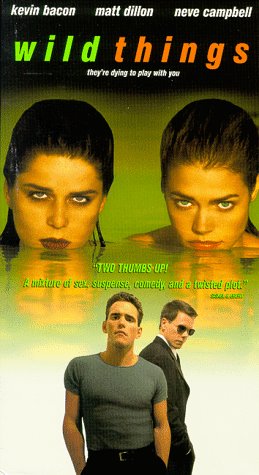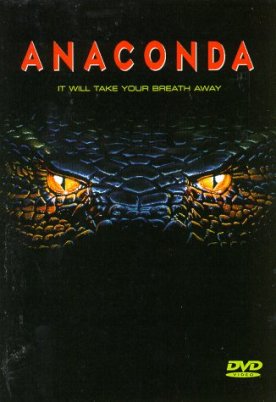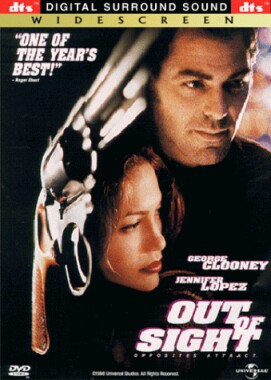Wild Things
Wild Things, directed by John McNaughton and written by Stephen Peters, is superior quality 90s noir — which means, as I have said before, noir without any moral compass whatsoever. It’s too bad because this could have been a good film. It has clever plotting, good dialogue (without being overfull of wisecracks and strained attempts at wit), a brilliant comic performance from Bill Murray as a shyster lawyer and, well, a lot of good ideas. But it has one very bad idea, which is the same bad idea that everybody else in Hollywood has been having lately (see, for instance, Primary Colors and Two Girls and a Guy) — namely that everybody is corrupt, out for his own ends and willing to sell out those to whom he owes obligations with little or no provocation. The wild things here are the people who, like the alligators that are constantly making appearances in the film (it is set in south Florida), are all reflexively and rather nastily predatory reptiles.
Even if this were true of human kind, it would be fatal for a movie (or any work of art) to say so. Simply put, when everybody is morally on a par, each trying to do down the next, it is boring. In classic noir, even when the characters themselves were all treacherous, there was always a stern moral presence visible above and behind them, ensuring that their treacheries came to nothing in the end. It was a vision of divine judgment so bleak as to create in us sympathy even for the worst of characters. Wild Things, by contrast, is just a tale of one clever villain getting the better of another clever villain until the cleverest villain of all is the only one left standing. It is like one of those thrillers that seek to entertain by whisking us along from one spectacular explosion to the next without pausing to set up a dramatic context. As with explosions, so with acts of treachery and greed and violence. Excitement without context becomes fatiguing.
To give details, you understand, would be to give away the plot, though I suppose I have already done this by telling you that there are no good guys in the film. Everybody is loathsome scum. The basic story involves two high school girls, Kelly Van Ryan (Denise Richards) and Suzy Toller (Neve Campbell), who accuse a popular teacher and guidance counselor at their school, Sam Lombardo (Matt Dillon) of rape. Kelly comes from a prominent and wealthy family, and her mother, Sandra (Theresa Russell), is a former lover of Sam’s who tells him that he will never be anything but “a hired hand” (or some other body part) around ritzy Blue Bay, Florida. She determines to do everything in her power to destroy him.
But at the trial Suzy breaks down and admits that both she and Kelly made the whole story up. Sam is exonerated and sues the Van Ryans for millions, settling quickly enough for eight and a half. Too quickly, you may think. But to go on from here would be to give too much away. The movie is nicely made, with some entertaining moments (mostly when Bill Murray is on the screen) and the beginnings of a serious point to make in the piquant contrast between wealthy and self-indulgent Blue Bay and the elemental Everglades which lie improbably near it. But in the end the most that can be said for it is what is said about Céline — bedtime reading for Suzy, who is supposed to have an IQ of 200 but can’t pronounce the author’s name — that he “has a pretty good line on what cheap f**** people are.”
Discover more from James Bowman
Subscribe to get the latest posts to your email.




